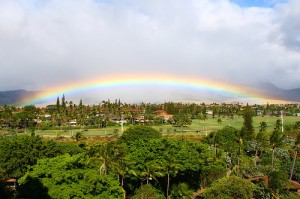 There are many ways to resolve disputes. Do a quick global tour of the dispute resolution landscape, and you’ll see just how many. It’s as if there is a rainbow of options. The rainbow mediator acknowledges the diverse approaches to resolution, and incorporates key elements into her/his practice. Kind of a think global, act local.
There are many ways to resolve disputes. Do a quick global tour of the dispute resolution landscape, and you’ll see just how many. It’s as if there is a rainbow of options. The rainbow mediator acknowledges the diverse approaches to resolution, and incorporates key elements into her/his practice. Kind of a think global, act local.
The dispute resolution spectrum
Moving beyond our western interest-based negotiation ways, Japan, Indonesia, China, Afghanistan, Philippines, Arab nations, Hawaii, Latin America, indigenous cultures everywhere each place deals with conflict in a different way. Each offers unique elements to the resolution mix. The rainbow mediator works with it all.
Ten questions
Knowing how important a good question is, here are ten a rainbow mediator continually asks; of themselves, and others, as they go about their mediation business:
- What’s appropriate? Along the continuum of dispute resolution approaches, what’s appropriate to this specific situation in front of me? self-help, mediation, adjudication… facilitation, evaluation, restoration, transformation…
- Do I bring kizuki? A Japanese term, kizuki is about being aware of what’s going on in the room, understanding the flows and tensions between people, a cousin of being in the moment.
- Is there space to make it happen? How do you break impasse? Maybe a break for a Chinese tea ceremony would help relationships first, resolution second
- Does this work for you? The individual; does it serve your interests?
- Will the community be served? Dispute resolution is not just about individuals, it’s about restoring and honoring community; e.g., negotiation/mediaton tradition in the Arab world, a Nisgaa (British Columbia First Nations people) potlatch
- Is it good karma? Pay it forward in Bali, settlement options build on doing good, not just who owes what
- Am I being a good neighbour? There is more to mediation than professionals, Chinese mediators work in neighbourhoods and communities
- What’s stopping us? From bringing everyone together to talk about it; e.g, as in a Maori restorative conference, a Filipino corporate/community reconciliation, or parties separated by distance, or
- Does this feel right? Rely on your intuition, your right (brain) hemisphere its where peace resides, seek spiritual resolution, too, as with the Hooponopono of Hawaii
- Being humble? Humility; maybe the most important attribute of any mediator, especially if learning is what you want to do
I think of the above questions, on a basic level, as respecting both our global diversity, and our shared values. Answers vary.
What’s your rainbow question?
Photo credit: randysonofrobert on flickr
—
[Leave a comment about this post. Subscribe to the feed to get regular updates.]

Speak Your Mind